South Africa and Nigeria emerge from recession but economic challenges persist
South Africa and Nigeria, sub-Saharan Africa’s two largest economies, exited recessions with gross domestic product (GDP) growth rates of 2.5 percent and 0.55 percent, respectively, for the second quarter of 2017. South Africa’s recovery follows two quarters of negative economic growth during which the economy shrank by 0.3 percent in the fourth quarter of 2016 and by 0.6 percent in the first quarter of 2017. Meanwhile, Nigeria bounced back from a deeper slump, as its GDP contracted by 1.5 percent in 2016 due to lower oil revenues. According to Bloomberg, agricultural growth contributed to the economic rebound of both economies, as agricultural output expanded by 34 percent in South Africa and 3 percent in Nigeria from the previous quarter.
Even as GDP numbers rebound, new data released by the South African Chamber of Commerce and Industry this week showed that South Africa’s business confidence index score fell to 89.6 from 95.3 in July—marking a 32-year low. Bloomberg notes that recent events such as a no-confidence motion in President Jacob Zuma, the downgrade of South Africa’s foreign currency debt to junk rating, and broader political uncertainty have likely detracted from businesses’ trust in the government. South Africa’s 14-year high unemployment rate, 27.7 percent, has weighed on the economy as well. Meanwhile, all four of South Africa’s largest banks have seen slower lending growth. The CEO of FirstRand Ltd., a major South African bank told Bloomberg, “Credit extension is going to be low for the next two to three years, unless we see some real recovery in economic growth.”
Nigeria’s 0.55 percent GDP growth was lower than economists’ estimates and is widely perceived to be weak by analysts. Nigeria’s Special Advisor on Economic Affairs to the President Dr. Adeyemi Dipeolu remarked that “overall, the end of recessions is welcome but economic growth remains fragile and vulnerable to exogenous shocks or policy slippages.” On the other hand, two bright spots in Nigeria’s latest economic data were its inflation numbers, which fell from 18.72 percent in January to 16.05 percent in July, and foreign exchange reserves, which have risen to $31 billion from the low level of $24.53 billion last September.
Preparations begin for Kenya’s election re-run
Following Kenya’s Supreme Court’s decision to invalidate the results of the August 8 presidential elections last week, the country is waiting for the judges’ full ruling on what went wrong in the original election, while also preparing for the election re-run to be held within the next 60 days. The Supreme Court is expected to release its full ruling by September 22, which will reveal whether electronic failures or meddling were responsible for “irregularities and illegalities in the transmission of results,” as the judges preliminarily described them. OT-Morpho, the French digital security firm that furnished the system tasked with delivering Kenya’s election results, denies that its systems were pirated and has handed over its data to the Supreme Court for analysis.
Meanwhile, the Independent Electoral and Boundaries Commission (IEBC) has proposed that the election re-run be held on October 17, however, opposition leader Raila Odinga has said he will boycott the election “without legal and constitutional guarantees” and unless the new election date is a “product of consultation with concerned parties and not a unilateral decision.” He is calling for the IEBC to strictly adhere to the constitution’s protocols on holding elections, fire some IEBC commissioners, and allow access to the IEBC’s electronic voting and result transmission system.
According to The Economist, organizing another election under such a tight timeline (and greater pressure) will be challenging and expensive: the August 8 vote cost $500 million and required the participation of 300,000 temporary workers. For recent analysis on the electoral re-run in Kenya and what it means for democracy there and on the continent, please see AGI Nonresident Senior Fellow John Mukum Mbaku’s blog: Kenya: Presidential elections and the rule of law.
Togo’s opposition demands constitutional change as Cameroon contends with ethno-linguistic tensions
This week, hundreds of thousands of discontented Togolese citizens took to the streets to demand constitutional reform. Protests took place in the capital, Lomé, and across 10 other cities. Protestors denounced the government of President Faure Gnassingbe, whose family has been in power for the last 50 years. President Gnassingbe came to power in 2005, succeeding his father who ruled the country for 40 years. Togo’s opposition party has been calling for the acceleration of constitutional reforms and the introduction of a two-round voting system. On Tuesday, Togo’s cabinet adopted a draft bill to re-introduce term limits. Protests supporting the bill continued despite the ruling government’s effort to implement constitutional reforms through the introduction of term limits. On Wednesday, Togo’s top opposition leader, Jean-Pierre Fabre, claimed that the legislation came too late and is now calling for the immediate departure of President Gnassignbe. As of Thursday 5pm EST, internet access was blocked in the country as protests continued. Presently, Togo, alongside The Gambia, is one of two ECOWAS (Economic Community of West African States) countries that do not have presidential term limits.
In related news, Cameroon continues to struggle with ethno-linguistic tensions. On Monday, violence erupted as gendarmes fatally shot a 17-year-old boy. In an official statement, the government said that the young boy was accidentally shot as villagers clashed with gendarmes. This is the latest violent incident in a string of protests, which have rocked Cameroon for months. The country’s English-speaking region has voiced concerns over the lack of inclusion they face from their French-speaking government. Last February, the internet in the English-speaking part of country was shut down for three months. To date, security forces have killed six people and arrested hundreds involved in the protests. Schools in the region resumed recently, but many students have not attended in protest of the ruling government.
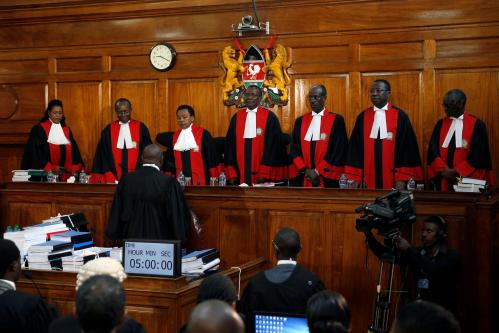
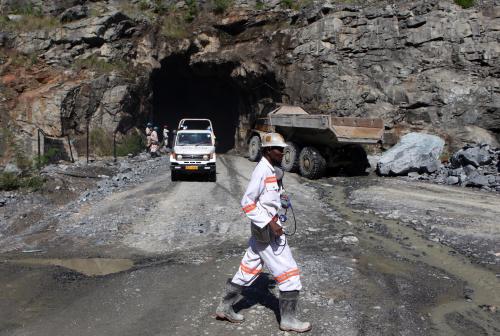
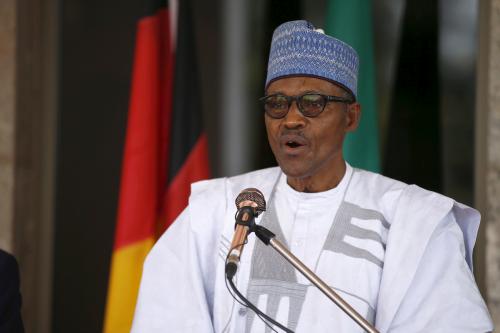

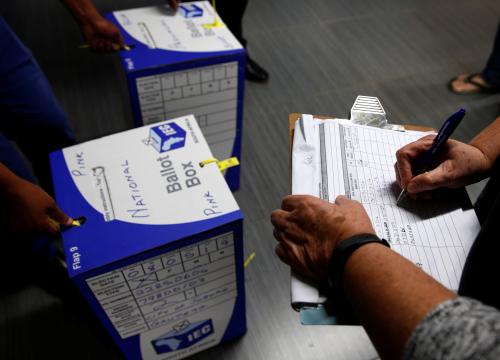
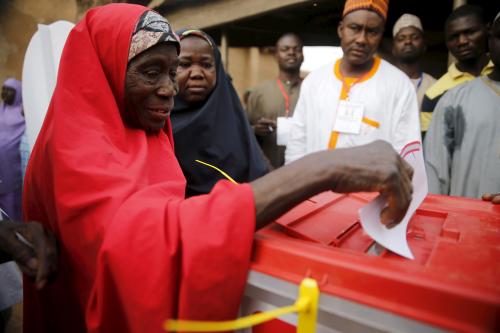
Commentary
Africa in the news: South Africa and Nigeria exit recession, Kenya prepares for election re-run, and Togo and Cameroon protest
September 8, 2017